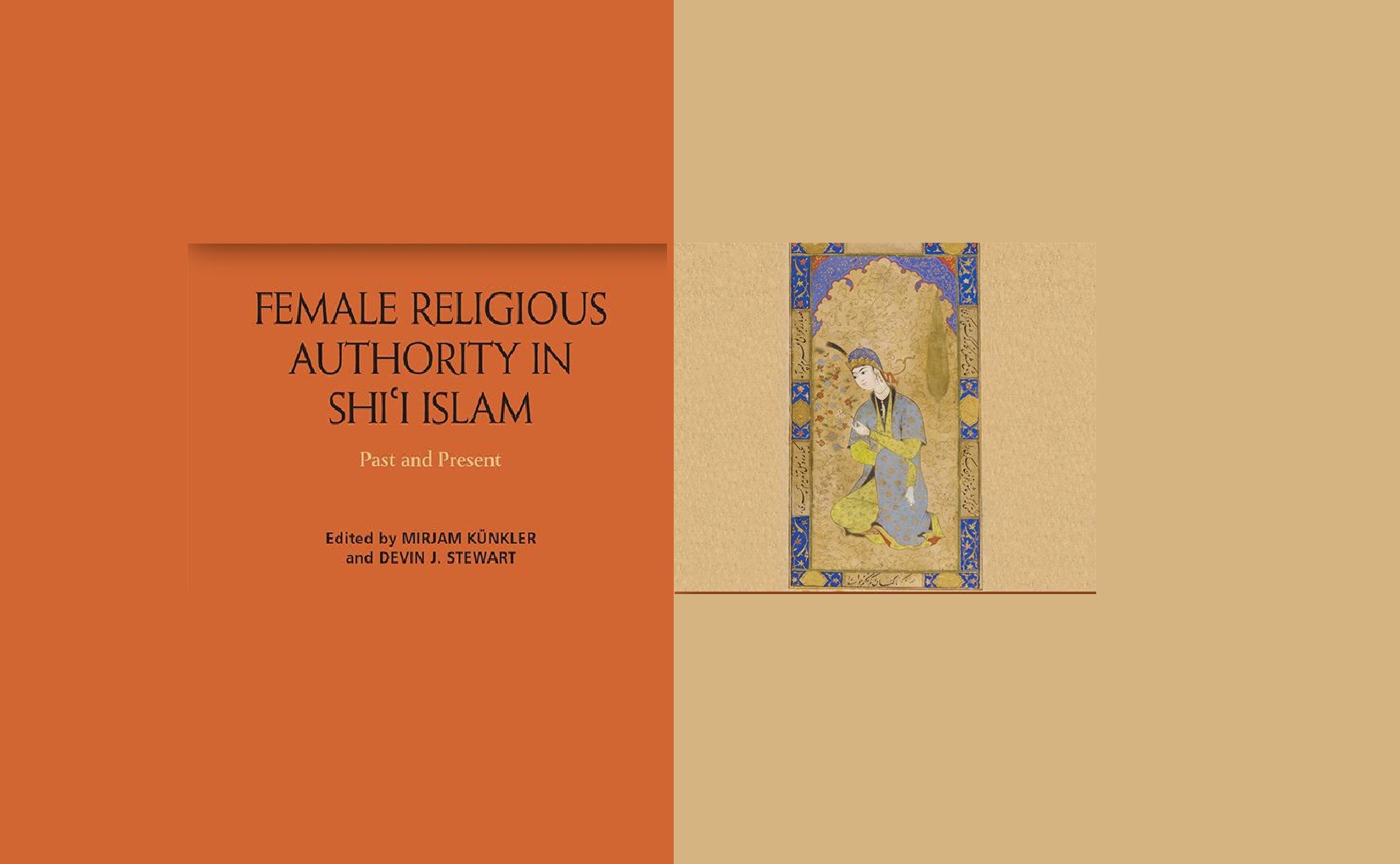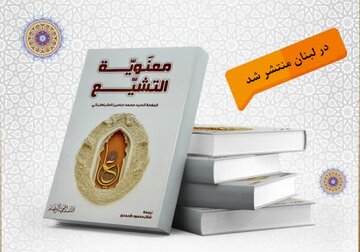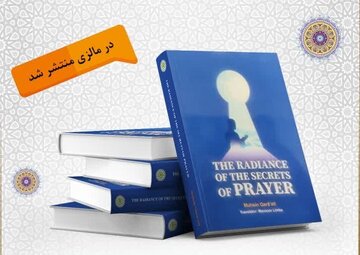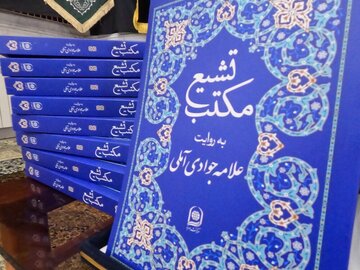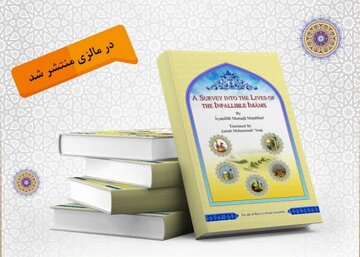AhlulBayt News Agency (ABNA): The book examines13 cases of women exercising religious authority in Shiʿi Islam from the classical period to the present.
Islamic religious authority is conventionally understood to be an exclusively male purview. Yet when dissected into its various manifestations – leading prayer, preaching, issuing fatwas, transmitting hadith, judging in court, teaching law, theology, and other Islamic sciences and generally shaping the Islamic scholarly tradition – nuances emerge that hint at the presence of women in the performance of some of these functions.
This collection of case studies, covering the period from classical Islam to the present, and taken from across the Shiʿi Islamic world, reflects on the roles that women have played in exercising religious authority across time and space. Comparative reflection on the case studies allows for the formulation of hypotheses regarding the conditions and developments – whether theological, jurisprudential, social, economic, or political – that enhanced or stifled the flourishing of female religious authority in Shiʿi Islam.
Key Features
- Features case studies of women exercising religious authority, including hadith transmitters, jurists, scholars of religion, women acting as representative for a leading ayatollah and women judges
- Addresses the classical, medieval and modern periods
- Brings together scholars from Islamic Studies, Middle Eastern Studies, Anthropology, History and Art History
- Provides insight into contemporary debates about female religious authority in Islam
- Questions assumptions about the inherently progressive agenda of female religious authorities
Contributors
- Yasmin Amin, University of Exeter
- Michael Barry, American University of Afghanistan
- Alyssa Gabbay, University of North Carolina at Greensboro
- Robert Gleave, University of Exeter
- Mirjam Künkler, Swedish Collegium for Advanced Study
- Raffaele Mauriello, Allameh Tabataba’i University
- Maryam Rutner, New York University
- Devin Stewart, Emory University
- Edith Szanto, University of Alabama
- Liyakat Takim, McMaster University
- Yusuf Ünal, Emory University
About the Author(s)
Mirjam Künkler is Senior Research Fellow at Swedish Collegium for Advanced Study. Her books include Indonesia, Islam and Democracy (Columbia University Press, 2013), A Secular Age Beyond the West (Cambridge University Press, 2018) and The Rule of Law in the Islamic Republic of Iran: Power, Institutions, and Prospects for Reform (Cambridge University Press, forthcoming 2021).
Devin Stewart is Professor of Arabic and Islamic Studies at Emory University. He has published numerous journal articles, including in Islamic Law and Society, Bulletin of the School of Oriental and African Studies and Journal of Qur’anic Studies.
Table of Contents
- Introduction
Mirjam Künkler and Devin Stewart - Forgotten Histories of Female Religious Authority in Islam
Mirjam Künkler, SCAS - Umm Salamah: A Female Authority Legitimating the Authorities
Yasmin Amin, University of Exeter - Heiress to the Prophet: Fatima as Inheritor of Her Father’s Legacy
Alyssa Gabbay, University of North Carolina at Greensboro - Female Authority in the Times of the Shi‘i Imams
Liyakat Takim, McMaster University, Canada - “She should not raise her voice when amongst men”: Imāmī arguments against (and for) women judges
Robert Gleave, University of Exeter - Husniyyah’s Debate at the Court of Harun al-Rashid: Sectarian Polemics and Female Religious Authority
Devin Stewart, Emory University - Layli as Queen of Heaven by Muhammadi of Herat, c. 1565
Michael Barry, American University of Afghanistan - Princesses, Patronage, and the Production of Knowledge in Safavid Iran
Yusuf Ünal, Emory University - The Lives of Two Mujtahidahs: Female Religious Authority in 20th Century Iran
Mirjam Künkler, SCAS, and Roja Fazaeli, Trinity College Dublin - The “Other Half of the Mission”: Amina Bint al-Hudà (al-Sadr) as Wakil for Muhammad Baqir al-Sadr?
Raffaele Mauriello, Allameh Tabataba’i University - Speaking in the Name of Zaynab: Female Shi‘i Religious Authority in Syria
Edith Szanto, University of Alabama - Women’s Religious Seminaries in Iran: A Diversified System Despite State Attempts at Unification and Standardization
Maryam Rutner, NYU
Bibliographic Information
Title: Female Religious Authority in Shi’i Islam
Editor(s): Mirjam Künkler & Devin Stewart
Publisher: Edinburgh University Press
Language: English
Length: 416 pages
ISBN: 9781474426602
Pub. Date: November 2021
Book: Female Religious Authority in Shi’i Islam
The book examines13 cases of women exercising religious authority in Shiʿi Islam from the classical period to the present.
Islamic religious authority is conventionally understood to be an exclusively male purview. Yet when dissected into its various manifestations – leading prayer, preaching, issuing fatwas, transmitting hadith, judging in court, teaching law, theology, and other Islamic sciences and generally shaping the Islamic scholarly tradition – nuances emerge that hint at the presence of women in the performance of some of these functions.
This collection of case studies, covering the period from classical Islam to the present, and taken from across the Shiʿi Islamic world, reflects on the roles that women have played in exercising religious authority across time and space. Comparative reflection on the case studies allows for the formulation of hypotheses regarding the conditions and developments – whether theological, jurisprudential, social, economic, or political – that enhanced or stifled the flourishing of female religious authority in Shiʿi Islam.
Key Features
- Features case studies of women exercising religious authority, including hadith transmitters, jurists, scholars of religion, women acting as representative for a leading ayatollah and women judges
- Addresses the classical, medieval and modern periods
- Brings together scholars from Islamic Studies, Middle Eastern Studies, Anthropology, History and Art History
- Provides insight into contemporary debates about female religious authority in Islam
- Questions assumptions about the inherently progressive agenda of female religious authorities
Contributors
- Yasmin Amin, University of Exeter
- Michael Barry, American University of Afghanistan
- Alyssa Gabbay, University of North Carolina at Greensboro
- Robert Gleave, University of Exeter
- Mirjam Künkler, Swedish Collegium for Advanced Study
- Raffaele Mauriello, Allameh Tabataba’i University
- Maryam Rutner, New York University
- Devin Stewart, Emory University
- Edith Szanto, University of Alabama
- Liyakat Takim, McMaster University
- Yusuf Ünal, Emory University
About the Author(s)
Mirjam Künkler is Senior Research Fellow at Swedish Collegium for Advanced Study. Her books include Indonesia, Islam and Democracy (Columbia University Press, 2013), A Secular Age Beyond the West (Cambridge University Press, 2018) and The Rule of Law in the Islamic Republic of Iran: Power, Institutions, and Prospects for Reform (Cambridge University Press, forthcoming 2021).
Devin Stewart is Professor of Arabic and Islamic Studies at Emory University. He has published numerous journal articles, including in Islamic Law and Society, Bulletin of the School of Oriental and African Studies and Journal of Qur’anic Studies.
Table of Contents
- Introduction
Mirjam Künkler and Devin Stewart - Forgotten Histories of Female Religious Authority in Islam
Mirjam Künkler, SCAS - Umm Salamah: A Female Authority Legitimating the Authorities
Yasmin Amin, University of Exeter - Heiress to the Prophet: Fatima as Inheritor of Her Father’s Legacy
Alyssa Gabbay, University of North Carolina at Greensboro - Female Authority in the Times of the Shi‘i Imams
Liyakat Takim, McMaster University, Canada - “She should not raise her voice when amongst men”: Imāmī arguments against (and for) women judges
Robert Gleave, University of Exeter - Husniyyah’s Debate at the Court of Harun al-Rashid: Sectarian Polemics and Female Religious Authority
Devin Stewart, Emory University - Layli as Queen of Heaven by Muhammadi of Herat, c. 1565
Michael Barry, American University of Afghanistan - Princesses, Patronage, and the Production of Knowledge in Safavid Iran
Yusuf Ünal, Emory University - The Lives of Two Mujtahidahs: Female Religious Authority in 20th Century Iran
Mirjam Künkler, SCAS, and Roja Fazaeli, Trinity College Dublin - The “Other Half of the Mission”: Amina Bint al-Hudà (al-Sadr) as Wakil for Muhammad Baqir al-Sadr?
Raffaele Mauriello, Allameh Tabataba’i University - Speaking in the Name of Zaynab: Female Shi‘i Religious Authority in Syria
Edith Szanto, University of Alabama - Women’s Religious Seminaries in Iran: A Diversified System Despite State Attempts at Unification and Standardization
Maryam Rutner, NYU
Bibliographic Information
Title: Female Religious Authority in Shi’i Islam
Editor(s): Mirjam Künkler & Devin Stewart
Publisher: Edinburgh University Press
Language: English
Length: 416 pages
ISBN: 9781474426602
Pub. Date: November 2021

